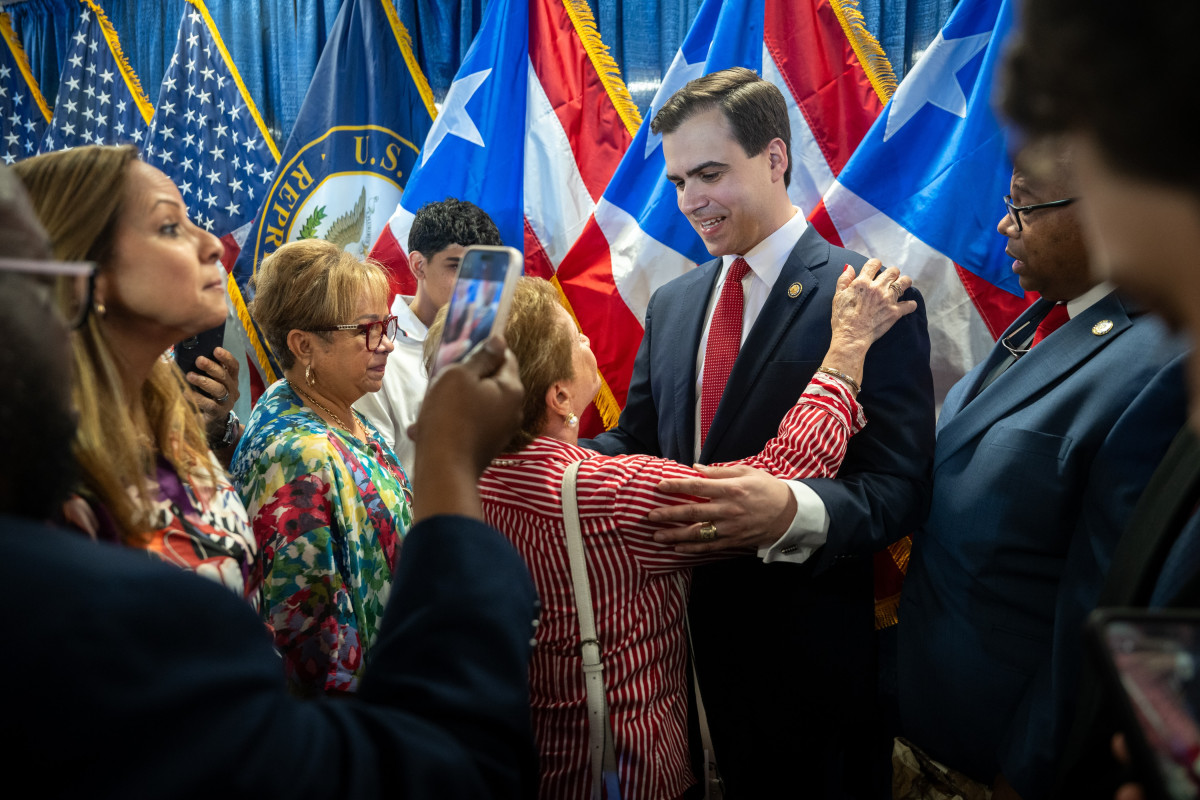In Response to Federal Government Actions, Resident Commissioner Introduces HABLA Act to Ensure Multilingual Access to Government Services

Hernández, joined by U.S. Representatives Alexandria Ocasio-Cortez, Nydia Velázquez, Ritchie Torres, Ed Case, Derek Tran, and Teresa Leger Fernández, introduces legislation codifying language access protections into federal law
WASHINGTON, D.C. – Puerto Rico Resident Commissioner Pablo José Hernández, joined by U.S. Representatives Alexandria Ocasio-Cortez (D-N.Y.), Nydia Velázquez (D-N.Y.), Ritchie Torres (D-N.Y.), Ed Case (D-Hawaii), Derek Tran (D-Calif.), and Teresa Leger Fernández (D-N.M.), has introduced the HABLA Act – legislation that protects multilingual access to government services across federal agencies.
The bill is a direct response to the President’s March 1, 2025 executive order declaring English the official language of the United States – a move that effectively revoked Executive Order 13166, first signed by former President Bill Clinton, which had directed federal agencies to ensure meaningful access for individuals with limited English proficiency (LEP). Last month, the National Weather Service (NWS) announced that the agency would discontinue providing language translations for weather alert services, an alarming decision that threatens to leave non-English speakers without access to life-saving alerts during extreme weather events. As hurricane season approaches this season, this policy change poses a serious risk to communities across the country, particularly in Puerto Rico, where a significant portion of the population relies on weather information in Spanish.
“Government works best when people can understand it. This bill makes sure language isn’t a barrier to accessing basic services – because when communication is clear, services run more smoothly, wait times drop, and agencies work more efficiently,” said Hernández. “At a time when the federal government is under intense scrutiny for fraud and abuse, making it more accessible to every person across all 50 states and territories is just common sense.”
The HABLA Act would codify the principles of Executive Order 13166 into federal law, requiring federal agencies to develop and maintain procedures that provide language access and reaffirming that multilingual access is a matter of administrative efficiency for a government that serves millions of people who speak languages other than English – including Spanish in Puerto Rico, and many more.
The legislation comes at a time when millions of U.S. residents face growing uncertainty over their ability to navigate government services, from healthcare to housing assistance or in the event of an emergency like extreme weather.
The HABLA Act ensures that language access protections remain a permanent feature of the federal government’s obligation to serve its citizens.
###